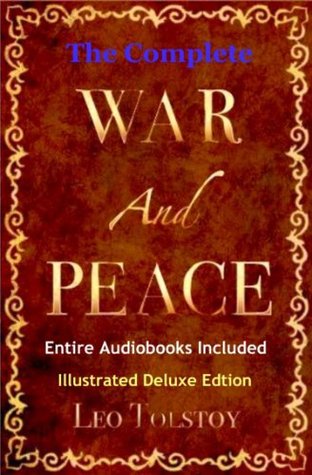More on this book
Community
Kindle Notes & Highlights
honor, l'honneur, is either a negative concept of not doing what is blameworthy or it is a source of emulation in pursuit of commendation and rewards, which recognize it.
our moral nature is such that we cannot be both idle and at ease. An inner voice tells us we are in the wrong if we are idle. If man could find a state in which he felt that though idle he was fulfilling his duty, he would have found one of the conditions of man's primitive blessedness.
his elemental hive life in which he inevitably obeys laws laid down for him.
Man lives consciously for himself, but is an unconscious instrument in the attainment of the historic, universal, aims of humanity. A
that's all there is in what is called heroism! And did I do it for my country's sake? And how was he to blame, with his dimple and blue eyes? And how frightened he was! He thought that I should kill him. Why should I kill him? My hand trembled. And they have given me a St. George's Cross.... I can't make it out at all."
They satisfied that eternal human need for hope of relief, for sympathy, and that something should be done, which is felt by those who are suffering.
The habits of the military class are the absence of freedom, that is, discipline, idleness, ignorance, cruelty, debauchery, and drunkenness.
criticizes them with looks of importance, when they relate to a battle that has been lost, and the very worst dispositions and orders seem very good, and serious people fill whole volumes to demonstrate their merits, when they relate to a battle that has been won.
Napoleon at the battle of Borodino fulfilled his office as representative of authority as well as, and even better than, at other battles. He did nothing harmful to the progress of the battle; he inclined to the most reasonable opinions, he made no confusion, did not contradict himself, did not get frightened or run away from the field of battle, but with his great tact and military experience carried out his role of appearing to command, calmly and with dignity.
The first method of history is to take an arbitrarily selected series of continuous events and examine it apart from others, though there is and can be no beginning to any event, for one event always flows uninterruptedly from another.
The second method is to consider the actions of some one man—a king or a commander—as equivalent to the sum of many individual wills; whereas the sum of individual wills is never expressed by the activity of a single historic personage.
To study the laws of history we must completely change the subject of our observation, must leave aside kings, ministers, and generals, and study the common, infinitesimally small elements by which the masses are moved. No one can say in how far it is possible for man to advance in this way toward an understanding of the laws of history; but it is evident that only along that path does the possibility of discovering the laws of history lie, and that as yet not a millionth part as much mental effort has been applied in this direction by historians as has been devoted to describing the actions
...more
a superfluity of the comforts of life destroys all joy in satisfying one's needs, while great freedom in the choice of occupation—such freedom as his wealth, his education, and his social position had given him in his own life—is just what makes the choice of occupation insolubly difficult and destroys the desire and possibility of having an occupation.
Nicholas stood before them in a stern and threatening attitude. "Have you done this?" he said, pointing to some broken sealing wax and pens. "I loved you, but I have orders from Arakcheev and
To find component forces equal to the composite or resultant force, the sum of the components must equal the resultant. This condition is never observed by the universal historians, and so to explain the resultant forces they are obliged to admit, in addition to the insufficient components, another unexplained force affecting the resultant action.
locomotive is moving. Someone asks: "What moves it?" A peasant says the devil moves it. Another man says the locomotive moves because its
Power is the collective will of the people transferred, by expressed or tacit consent, to their chosen rulers.
We only know that to produce the one or the other action, people combine in a certain formation in which they all take part, and we say that this is so because it is unthinkable otherwise, or in other words that it is a law.
consciousness is not subject to reason.


